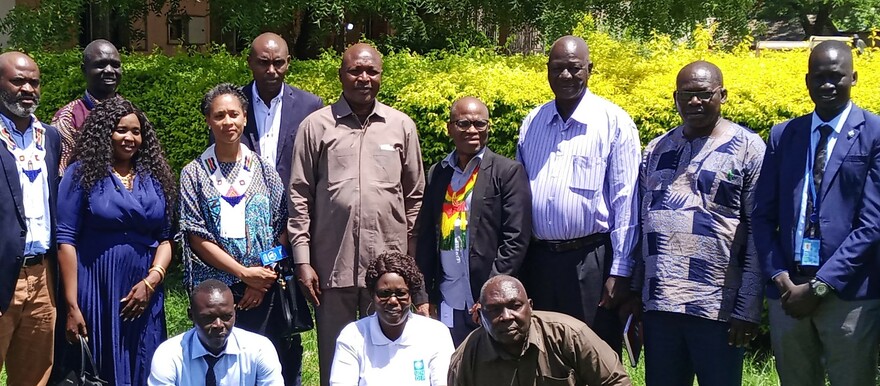Officials in the Eastern Equatoria State government have attributed the failure to collect sufficient revenues to bad roads and a poorly trained workforce.
The revelation was made on Friday when state officials met a high-level delegation from the African Development Bank (AfDB) and UNDP in Torit. The state is a beneficiary of the institutional support project for strengthening economic governance in South Sudan and is being supported through a public financial management project.
Andrew Ohide, the director for planning at the state finance ministry, said the roads in the state were very bad which made the collection of revenue difficult.
“Currently, some of the roads in the state are not passable; they are very poor. If there is a need to collect (revenues) so that we implement the issues on the ground, we need to have good roads,” he said. “Another issue is capacity building for our staff. We need to have skilful staff who can collect the information. On the issue of public finance management, we need to build the capacity of state accountants, people who are working in the finance ministry and reporting on the issue of funds so that they can report correctly and can also receive and disburse money in the right manner.”
Ohide also said that officials do not have vehicles to traverse the state.
Meanwhile, Geoffrey Von Otto, the executive director of the state revenue authority, said his office has benefited from the training of 25 staff, which has led to improved revenue collection.
He, however, said that the state does not collect taxes on some contracts awarded by the UN and other entities in Juba.
“The aspect of tax jurisdiction for the state, especially for some contracts awarded by UN agencies and implemented at the state level, is done without incorporating tax at the state level and as such, we are losing because, by law, we are supposed to collect tax but we do not,” he said. “We are missing it because it is not incorporated in the agreement. It has to be followed to support the state in implementing activities.”
For his part, Governor Louis Lobong Lojore recognized the UNDP’s support and said his government is committed to working and accounting for any aid coming to benefit the population.
“We appreciate that you are bringing experts but we also want you to train other experts who will be here in the state. You have brought an expert you have hired for a period of one or two years, but after that, what next?” he asked. “Can you include in your programs, in your budget, the training and remuneration of people who are already employees so that by the time the project ends, we have people that you have trained to continue?”
Eline Okudzeto, AfDB Principal Governance Officer Eline Okudzeto, said the Bank is ready to support the development of roads among other development projects.
“In AfDB’s strategy for South Sudan as a whole, we are looking at main priorities like agriculture, strengthening revenue collection and capacity building and agriculture,” he said. “We focused on agriculture value change development for economic diversification and building resilience and based on this, one of the things we will be doing is to look into feeder roads.”
UNDP’s Deputy Resident Representative in charge of programs, Titus Okwindino, said the program also intends to support the state parliament with training in its oversight role.
“Based on advancement we have made in the area of budget preparation and revenue generation, the support we give to the parliament is very key for progress,” he said. “The other area we want to look at closely is the Bureau of Statistics which is receiving a lot of support at the national level. Then we may also need to support the state and parliament in terms of oversight to be able to move forward.”




